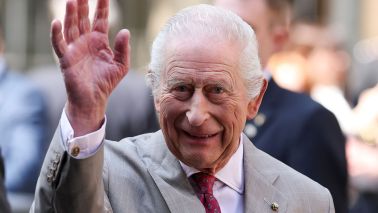Haydn’s The Creation is Paradise Lost without the Lost. True, the words aren’t exactly up there: translated into German by Haydn’s pal Baron van Swieten and subsequently retro-translated into some of the clumsiest, most endearingly rococo English ever set to music. But you get the idea. Near the start some demons get consigned (very efficiently) to the outer darkness, and at the end the angel Uriel gives Adam and Eve the briefest of warnings – despatched in a brisk recitative before the chorus of angels floods the heavens, once more, with sunlight and praise. Basically, though, it’s optimism. It’s freshness. It’s a universe founded on faith, and with it, joy.
The Creation portrays a world that (for a brief dewy morning) stands in no need of redemption
An odd choice of repertoire for Belfast on a Good Friday? Even leaving the politics and theology aside, it’s hard to imagine a piece more remote from the usual anguished Pass-iontide fare. The Creation portrays a world that (for a brief dewy morning) stands in no need of redemption and its first public performance, in Vienna in March 1799, might have been the last moment in history when a composer could produce a universally acknowledged masterpiece on those terms. Twelve months later Haydn’s pupil Beethoven premiered his First Symphony. From then on you know the story: conflict, issues, the artist against the world, and two centuries later here we all are, still trying to reverse ourselves out of that particular mess.
What we got at the Ulster Hall was surround-sound happiness. The Ulster Orchestra, under its principal conductor, Daniele Rustioni, accompanied the 100-strong Belfast Philharmonic Choir, and it didn’t feel too many. Intimidated by the slimline aesthetic of period instrument orthodoxy, most symphony orchestras feel compelled to shrink 18th-century music down to chamber scale. In fact (as Christopher Hogwood demonstrated back in 1991), Haydn’s own Vienna performances fielded an orchestra of 120, which isn’t far short of Mahler’s Eighth.








Comments
Join the debate for just £1 a month
Be part of the conversation with other Spectator readers by getting your first three months for £3.
UNLOCK ACCESS Just £1 a monthAlready a subscriber? Log in